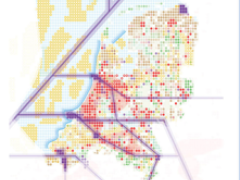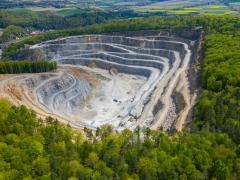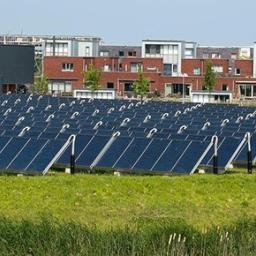Global Green Recovery
Over the course of 2020, a global narrative for green recovery has emerged. This narrative combines the need to address the pressing short-term socio-economic effects of the COVID-19 pandemic with the urgent need to trigger the long-term transitions that address global sustainability challenges. The narrative calls for globally coordinated action that has been widely embraced by governments and international organisations. The international community now faces the challenge of translating that narrative into policy.
In this report, at the request of the Dutch Ministry of Foreign Affairs, PBL describes the global green recovery narrative, to inform international policy in the context of sustainable development. For this study, a background note was prepared with case studies on how Denmark, Germany, the Netherlands, the United Kingdom, and the European Union are currently operationalising global green recovery.
Different logics for global green recovery
The report discerns three distinct logics of how the green recovery narrative is currently propagated:
- Green recovery as a co-benefit: measures for economic recovery may also contribute to environmental goals.
- Green recovery as a necessary condition: ignoring existing sustainability challenges in economic recovery measures will lead to problems in the future.
- Green recovery as an opportunity: economic recovery measures offer an opportunity to make additional progress towards sustainability objectives.
The relative dominance of these logics has consequences for how considerations of effectiveness, efficiency and feasibility inform the composition and implementation of stimulus programmes.
Green recovery beyond the buzz
For green recovery to become more than a buzzword, using the term must have real policy consequences. This report suggests that moving from a shared narrative to international policy, first of all, implies the need for strengthening global cooperation to achieve long-term sustainable development objectives. In addition, countries should acknowledge the coherence between various priority areas of green recovery and, early on, consider potential trade-offs and synergies between their primary recovery priorities and other sustainable development objectives. Furthermore, clear strategies need to be developed to address equity and inclusiveness in global recovery efforts, taking into account unevenly distributed impacts of the current COVID-19 pandemic as well as distributive impacts of recovery policies. Finally, the combination of the magnitude of recovery investments and the urgency with which they need to be made, makes monitoring and accountability of investment decisions all the more pressing.
Authors
Specifications
- Publication title
- Global Green Recovery
- Publication subtitle
- From global narrative to international policy
- Publication date
- 1 March 2021
- Publication type
- Report
- Page count
- 26
- Publication language
- English
- Product number
- 4565



